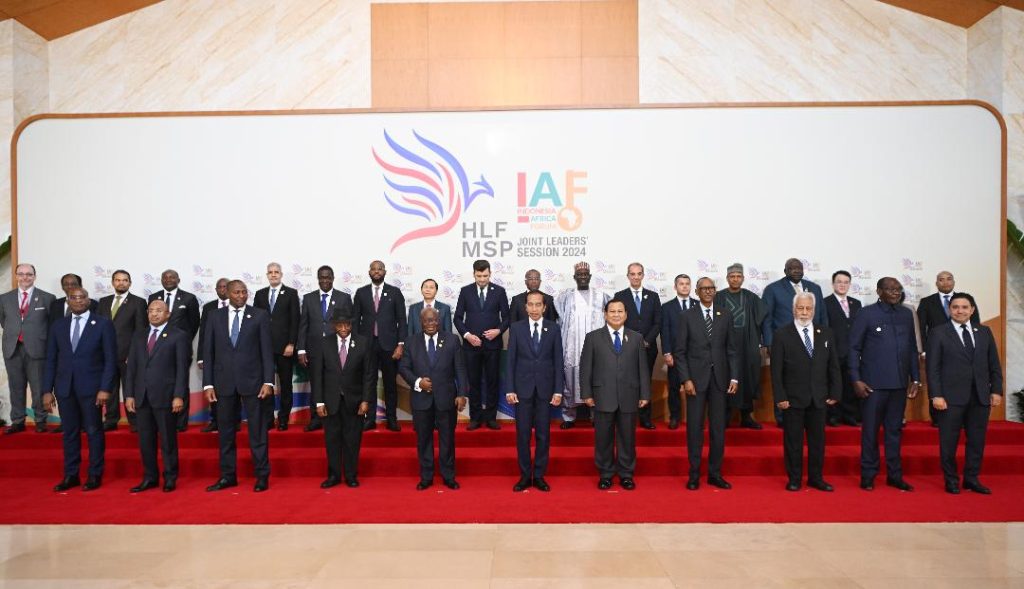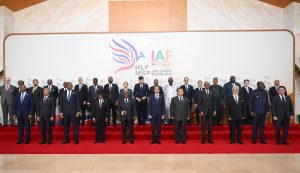
Group photograph of leaders and heads of delegation at the Joint Leaders Session of the Indonesia-Africa Forum at Bali, Indonesia, on September 2, 2024. Minister of Information and National Orientation, Mohammed Idris, representing President Bola Ahmed Tinubu, is at the back row, 4th from right.
FG reaffirms commitment to strengthening partnership with Indonesia at 2nd Indonesia-Africa Forum

Representing President Bola Ahmed Tinubu, Nigeria’s Minister of Information and National Orientation, Mohammed Idris, led the Nigerian delegation to the High-Level Multi-Stakeholder Partnerships and the Joint Leaders Session. The Minister reiterated Nigeria’s dedication to fostering a stronger partnership with Indonesia, emphasizing that both regions stand to gain significantly from enhanced cooperation in trade, investment, and the exchange of knowledge and expertise.

“The Indonesia-Africa Forum is a catalyst for a new era of cooperation, aimed at propelling both our countries toward a brighter and more prosperous future,” said Minister Idris. “Nigeria is committed to leveraging our shared strengths and resources to focus on critical pillars such as economic transformation, energy and mining, food and health security, and the digital economy. These are the foundations upon which our future cooperation will be built, driving inclusive and sustainable economic growth beneficial to all our nations.”
The forum highlighted the significant economic and demographic potential of Africa and Indonesia, which together represent over 1.7 billion people and a combined GDP of USD 4.4 trillion. The event brought together Heads of State, government officials, business leaders, and stakeholders from across the regions to discuss economic cooperation, address global challenges, and explore avenues for mutual sustainable growth and development.
Nigeria’s leadership in advancing the African Union’s Agenda 2063 was also a focal point during the discussions. The Minister emphasized President Tinubu’s comprehensive agenda for economic reforms, security, governance, and social development at the national level, as well as his efforts to enhance regional trade, infrastructure, and political stability through his leadership in the Economic Community of West African States (ECOWAS). Nigeria’s active participation in the African Continental Free Trade Area (AfCFTA) was noted as a key driver for boosting intra-African trade and industrialization.
The event, attended by delegates from 22 African countries and five non-African countries, also paid homage to the 1955 Asia-Africa Forum, known as the Bandung Spirit, which laid the groundwork for Asia-Africa relations. The meeting called for increased interaction between the continents in terms of trade, investment, and development cooperation. It was emphasized that Africa should move beyond being a mere exporter of raw materials to becoming a center of production, with specific recognition given to the trans-Saharan Gas pipeline projects between Nigeria, Algeria, and Morocco.
The Indonesia-Africa Forum serves as a strategic platform to bolster economic ties between Indonesia and African nations. The forum facilitates dialogue, fosters partnerships, and promotes sustainable development through collaboration in key sectors such as trade, investment, energy, and the digital economy.



